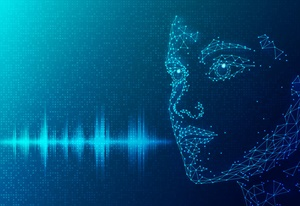Sci/tech
Emotional intelligence is key for women empowerment, says 'Missile Woman' of India
Thiruvananthapuram, Mar 19 (IANS) Dr Tessy Thomas, often referred to as the ‘Missile Woman of India’, said that in an age of scientific advancement, women need emotional intelligence to empowered themselves.
Thomas is former Director General of Aeronautical Systems, Defence Research and Development Organisation (DRDO).
She made this remark while delivering a lecture on ‘Invest in Women: Accelerate Progress’, as part of the lecture series organised to mark International Women’s Day 2024 celebrations of Rajiv Gandhi Centre for Biotechnology (RGCB) here.
The ‘Missile Woman’ of India referred to women’s strengths, and said that though women possess unique capabilities of dedication, responsibility, commitment, and passion; and that their emotional intelligence has to be strengthened to tackle situations that arise in their distinct careers.
“Emotional intelligence is the ability to simultaneously react by keeping one’s feelings and responding to others reasonably in challenging situations,” she said.
“A woman has to be self-empathetic, self-esteemed, fully committed and aware of situations along with her technical knowhow and leadership qualities. Then she can be an empowered person,” added the first woman scientist to head a missile project in India.
According to her, a woman’s intuitive capability and self-confidence are of great importance to her growth.
Noting that there are a lot of opportunities for women within DRDO, she said that her association with her illustrious peers and personalities like APJ Abdul Kalam instilled in her ample courage and motivation to work.
Commenting on giving equality and respect to the girl child, she said that it has to start within the family to progress in educational institutions, and should be promoted at career level.
Currently the Vice Chancellor of Noorul Islam Centre for Higher Education, Kumarakovil, Tamil Nadu, Thomas was the Project Director for the Agni-IV missile in DRDO and the Project Director (Mission) for the long-range AGNI-5 system.
–IANS
sg/kvd
Sci/tech
AI Chatbots Alexa, MyAI, Bing come with ‘empathy gap’, may harm children

New Delhi, July 11 (IANS) Artificial intelligence (AI) chatbots like Amazon’s AI voice assistant Alexa, Snapchat’s My AI, and Microsoft’s Bing have frequently shown signs of an “empathy gap” that puts young users at risk of distress or harm, according to a study on Thursday that proposes the urgent need for “child-safe AI”.
The research from the University of Cambridge calls on developers and policymakers to prioritise approaches to AI design that take greater account of children’s needs.
Children are likely to treat chatbots “as lifelike, quasi-human confidantes” but when the technology fails to respond to their unique needs and vulnerabilities, it can affect the kids, showed the study, published in the journal Learning, Media and Technology.
This is evident from the cases where Alexa instructed a 10-year-old to touch a live electrical plug with a coin, and My AI gave adult researchers posing as a 13-year-old girl tips on how to lose her virginity to a 31-year-old.
In a separate reported interaction with the Bing chatbot, which was designed to be adolescent-friendly, the AI became aggressive and started gaslighting a user.
“Children are probably AI’s most overlooked stakeholders,” said academic Dr Nomisha Kurian from the University of Cambridge.
She noted that while making a human-like chatbot can provide many benefits, “for a child, it is very hard to draw a rigid, rational boundary between something that sounds human and reality”.
Kurian said that kids “may not be capable of forming a proper emotional bond.”
Further, she argued that it can be “confusing and distressing for children, who may trust a chatbot as they would a friend”
To make AI “an incredible ally for children”, it should be designed with kids’ needs in mind.
“The question is not about banning AI, but how to make it safe,” she said.
–IANS
rvt/uk
Sci/tech
New jobs created in Indian economy in 2014-23 jump over 4-fold compared to 2004-14: SBI study

New Delhi, July 11 (IANS) As many as 12.5 crore jobs have been created in the Indian economy during the financial years 2014-23, which represents an over four-fold jump from the 2.9 crore jobs created during 2004-14, according to a State Bank of India (SBI) study.
“Even if we exclude Agriculture, the total number of jobs created in Manufacturing and Services is at 8.9 crores during FY14-FY23 and 6.6 crores during FY04-FY14,” according to the report prepared by SBI’s Economic Research Department based on RBI data.
The total employment reported by Micro, Small and Medium Enterprises (MSMEs) registered with the MSME Ministry has crossed the 20 crore mark, data from the Udyam registration portal shows.
As of July 4, 4.68 crore Udyam-registered MSMEs reported 20.19 crore jobs, including 2.32 crore jobs by GST-exempted informal micro enterprises, up by 66 per cent from 12.1 crore jobs in July last year, showed ERD’s analysis.
“One interesting fact emerges by comparing EPFO (Employee Provident Fund Organisation) data with RBI’s KLEMS (Capital/K, Labour/L, Energy/E, Material/M and Services/S) data. When we took the share of EPFO with KLEMS, the FY24 share at 28 per cent was drastically lower than the average share of the 5-year period (FY19-FY23) at 51 per cent. As EPFO data capture primarily low-income jobs, the declining share is quite encouraging and indicate that possibly better paid jobs are getting available in the economy,” said Soumya Kanti Ghosh, SBI’s Group Chief Economic Advisor.
–IANS
sps/svn
Sci/tech
Data centre market in south India to see 65 pc growth by 2030: Report

Bengaluru, July 11 (IANS) Fueled by Chennai, Bengaluru and Hyderabad, the data centre market in south India is projected to grow 65 per cent by 2030, a report showed on Thursday.
This surge is supported by substantial government incentives, strategic infrastructure investments and a rising demand for digital services, according to the report by Colliers India.
The combined installed data centre capacity in Chennai, Bengaluru, and Hyderabad stands at nearly 200 MW.
“This foundation is set to be significantly bolstered, with 190 MW currently under construction and an additional 170 MW planned,” according to the report.
These developments are expected to increase the total capacity by 80 per cent over the next few years, underscoring the region’s strategic importance in supporting global digital infrastructure.
“With sustained government support and continuous infrastructure development, South India is set to become a global data centre hub,” said Swapnil Anil, Executive Director & Head of Advisory Services, Colliers India.
Chennai currently has an installed capacity of 87 MW, with 156 MW under construction and 104 MW planned.
Bengaluru leverages its strong IT ecosystem. The city currently has an installed capacity of 79 MW, with 10 MW under construction and 26 MW in the planning stages.
Hyderabad is rapidly emerging as a data centre hotspot. The city has an installed capacity of 47 MW, with 20 MW under construction and 38 MW planned.
The monthly recurring charges for data centres in South India are competitive, ranging between Rs 6,650 – Rs 8,500 per kW per month according to the usage, offering significant value for money, said the report.
–IANS
na/svn
Sci/tech
Samsung reveals India pricing for new foldables, wearables

Paris, July 11 (IANS) Samsung on Thursday announced India pricing for the sixth generation of its foldable smartphone series, with pre-orders for Galaxy Z Fold6 and Z Flip6 now open.
The Galaxy Z Flip6 (12GB+256GB) will cost Rs 109,999 and the 12GB+512GB version will come for Rs 121,999.
Galaxy Z Fold6 in the 12GB+256GB variant will cost Rs 164,999 while the 12GB+512GB version will come for Rs 176,999.
The 12GB+1TB (silver shadow colour) will cost Rs 200,999, informed the company.
“Those pre-ordering the devices will get two screen and parts replacement as part of ‘Galaxy Z Assurance’ worth Rs 14,999 at just Rs 999,” the company said, adding that existing Samsung flagship customers can avail Rs 15,000 upgrade bonus.
“Together with Al-infused connected Galaxy ecosystem, our new products will empower you and enhance your lives. I am excited to share that both Galaxy Z Fold6 and Z Flip6 are manufactured at our Noida factory,” said JB Park, President and CEO, Samsung Southwest Asia.
The Galaxy Watch Ultra will be available in a 47mm size in Titanium Gray, Titanium White and Titanium Silver colours. Galaxy Watch Ultra will cost Rs 59,999.
On the other hand, Galaxy Watch 7 (40 mm BT) will come for Rs 29,999; Watch 7 (40 mm LTE) for Rs 33,999; Watch 7 (44 mm BT) for Rs 32,999 and Watch 7 (44 mm LTE) for Rs 36,999 (with some offers).
“In addition to the new advanced Galaxy AI algorithm for sleep analysis and get a deeper understanding of your heart health with Electrocardiogram (ECG) and Blood Pressure (BP) monitoring,” said the company.
Galaxy Buds3 are priced at Rs 14,999 and Buds3 Pro for Rs 19,999.
The Galaxy Z Fold6, Z Flip6 and wearable devices (Buds3 series, Watch7 and Watch Ultra) will be available from July 24.
–IANS
na/
Sci/tech
India set to make strides in quantum technology, AI with the US: Union Minister

New Delhi, July 11 (IANS) India, under the leadership of Prime Minister Narendra Modi, is set to make great strides in quantum technology, artificial intelligence, critical metals and semiconductor sectors with the United States, Union Minister of State (Independent Charge) for Science and Technology, Dr Jitendra Singh, has told a visiting delegation of the US-India Business Council (USIBC).
The delegation led by Edward Knight, Executive Vice Chairman called on the Union Minister and discussed collaboration in different areas, according to the Ministry of Science and Technology.
The minister recalled PM Modi’s recent visit to the US and highlighted the joint statement on the deployment of greenfield renewable energy, battery storage and emerging green technology projects in India.
Dr Singh emphasised on the government’s vision in AI and Machine learning and expressed optimism over its integration with the AI task force developed by USIBC.
“Large Language Models (LLMs) are being worked upon by the Department of Science and Technology which are aligned with the task force,” the minister informed.
India is now a frontline nation in next-generation technologies.
He also informed the delegation about the ‘Anusandhan NRF’ on the similar lines of the National Research Foundation in the US.
Highlighting India’s progress in the last decade in science and technology, the minister recalled that the biotech industry has reached $140 billion with more than 4,000 companies.
NISAR — a joint mission between NASA and ISRO — is also evidence of India’s prowess in the space sector.
He also referred to the new space policy and its benefits reaped in recent months.
Knight appreciated India’s model of ‘JAM’ (Jan Dhan Yojana, Aadhaar and mobile) trinity and direct benefit transfer (DBT), and invited the Minister for the ‘49th India Ideas Summit 2024’.
–IANS
na/dpb
-
Video1 year ago
PM Modi Attacks Congress in Karnataka with “Kerala Story”
-
Cricket1 year ago
CSK players rejoice 5th IPL title with their families (Pics)
-
Politics1 year ago
Siddaramaiah & DK Shivakumar sworn in as Chief Minister & Deputy CM respectively
-
Entertainment1 year ago
Karan Deol weds his longtime Girlfriend Drisha Acharya (Pics)
-
Entertainment1 year ago
Urvashi Rautela dazzles on Cannes 2023 red carpet (Pics)
-
Entertainment1 year ago
Sunny Leone gets ready for Kennedy premiere in Cannes (Pics)
-
Entertainment1 year ago
Alia Bhatt looks crazy beautiful in Prabal Gurung creation at MET GALA 2023 (Pics)
-
Cricket1 year ago
Sakshi & Ziva Dhoni enjoy their time during CSK VS MI match

































